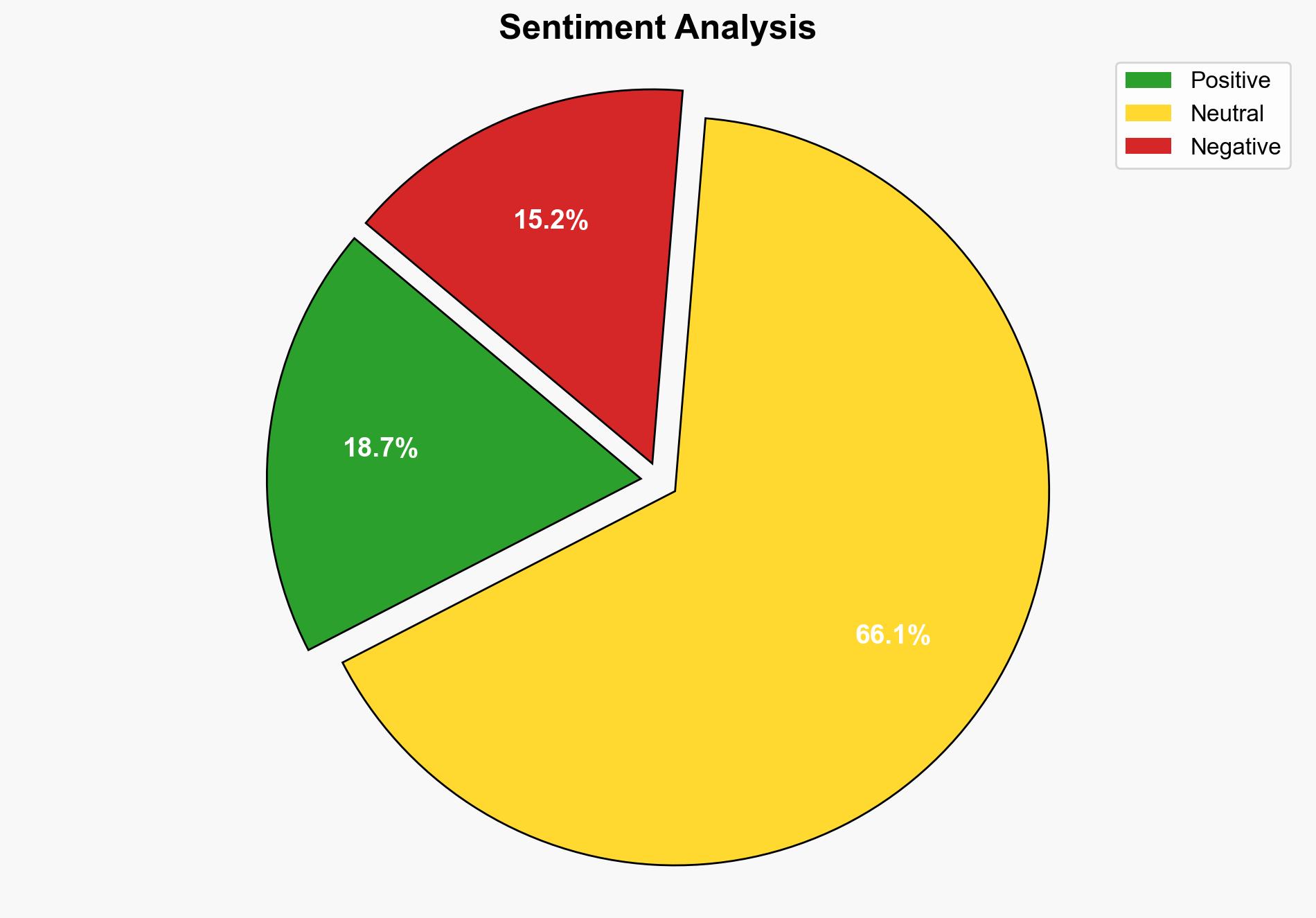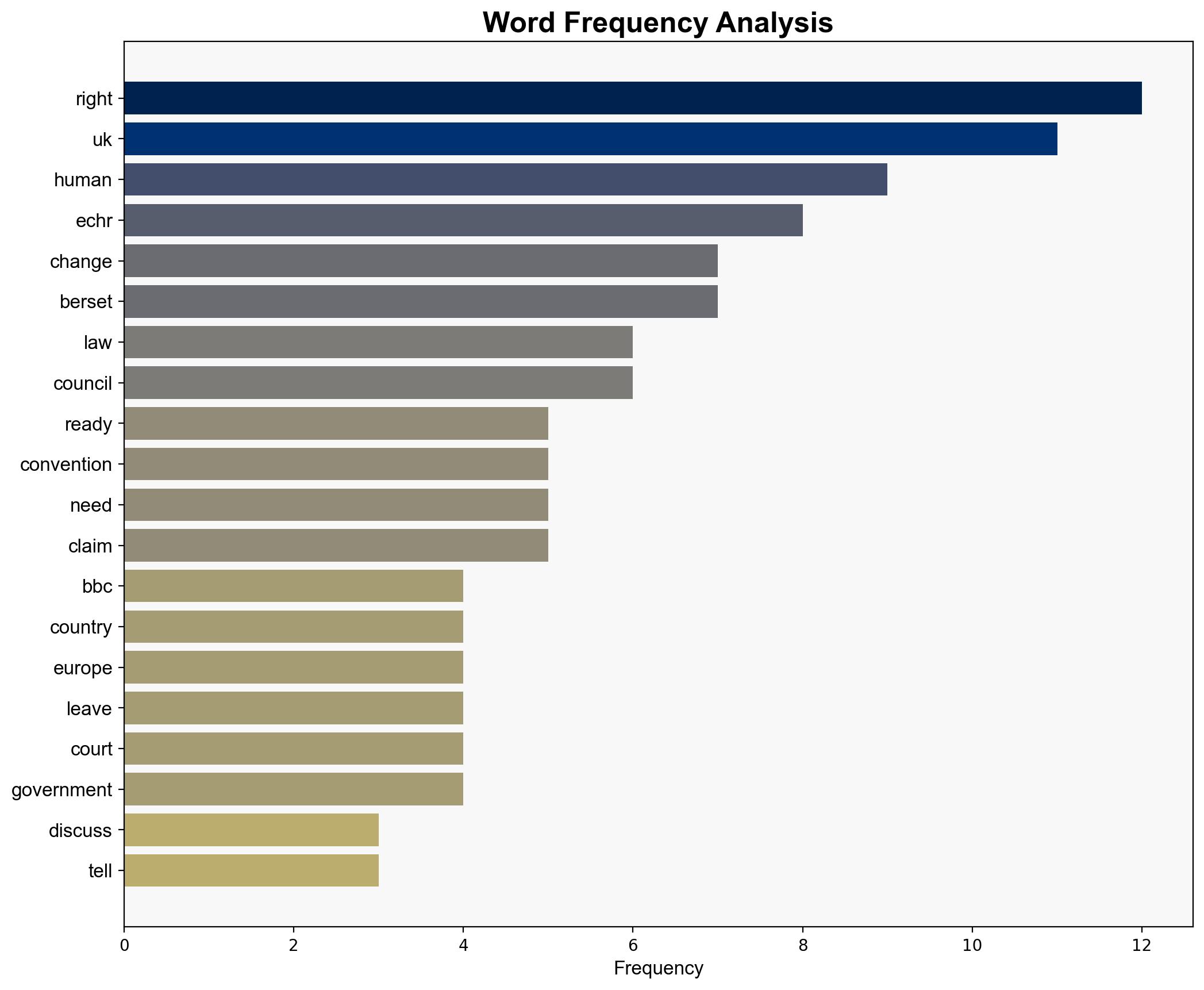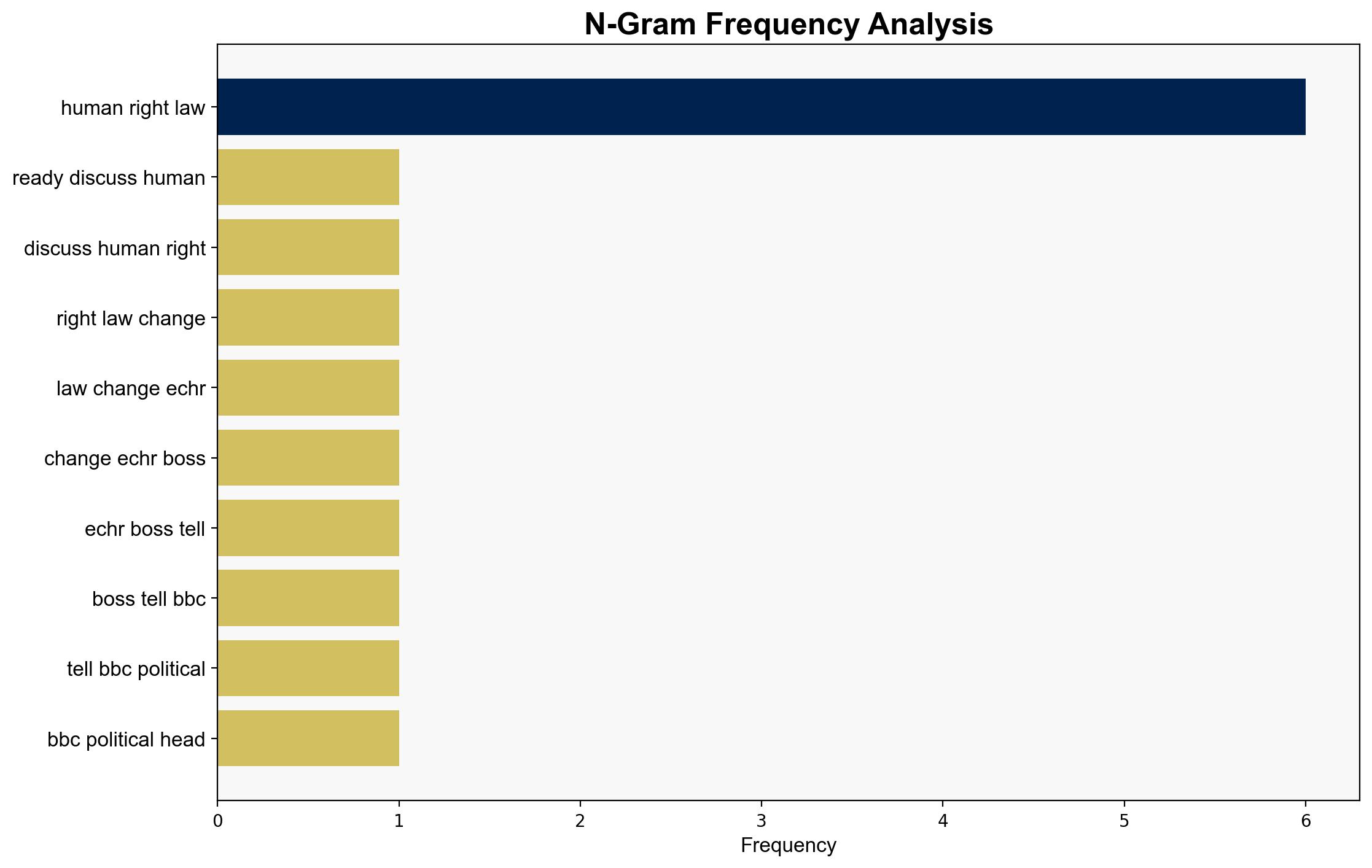We are ready to discuss human rights law changes top ECHR boss tells BBC – BBC News
Published on: 2025-11-04
Intelligence Report: We are ready to discuss human rights law changes top ECHR boss tells BBC – BBC News
1. BLUF (Bottom Line Up Front)
The most supported hypothesis is that the European Court of Human Rights (ECHR) is genuinely open to discussing reforms to adapt to contemporary challenges, including migration issues, while maintaining its core principles. The confidence level in this hypothesis is moderate due to the complex political dynamics involved. Recommended action includes diplomatic engagement with the ECHR to influence reform discussions in a manner that aligns with national interests, particularly concerning migration policies.
2. Competing Hypotheses
1. **Hypothesis A**: The ECHR is genuinely open to reforming human rights laws to address contemporary challenges, such as migration, while ensuring continued adherence to its foundational principles.
2. **Hypothesis B**: The ECHR’s expressed willingness to discuss reforms is primarily a strategic move to placate member states, like the UK, that are critical of its current operations, without any real intention of significant change.
Using the Analysis of Competing Hypotheses (ACH) 2.0, Hypothesis A is better supported due to the explicit statements made by Alain Berset and the historical context of the ECHR’s adaptability. However, Hypothesis B cannot be entirely dismissed due to the political pressures and strategic interests involved.
3. Key Assumptions and Red Flags
– **Assumptions**: It is assumed that the ECHR has the capacity and willingness to implement meaningful reforms. Another assumption is that member states will reach a consensus on the need for change.
– **Red Flags**: The potential for political rhetoric to overshadow genuine reform efforts. The possibility that internal political dynamics within the UK may influence its stance more than international considerations.
– **Blind Spots**: Limited information on the specific reforms being considered and the positions of other key member states.
4. Implications and Strategic Risks
– **Geopolitical Risks**: A failure to reach consensus on reforms could lead to increased isolation of the UK from European human rights frameworks, affecting its international standing.
– **Economic Risks**: Potential impacts on trade and diplomatic relations with European countries if the UK were to distance itself from the ECHR.
– **Psychological Risks**: Public perception of human rights and migration policies could be influenced by the outcome of these discussions, affecting domestic political stability.
5. Recommendations and Outlook
- Engage in proactive diplomatic discussions with the ECHR to shape reform outcomes favorably.
- Monitor political developments within the UK and other member states to anticipate shifts in negotiation stances.
- Scenario Projections:
- Best Case: Successful reforms that address migration concerns while strengthening human rights protections.
- Worst Case: Breakdown in negotiations leading to the UK’s withdrawal from the ECHR framework.
- Most Likely: Incremental reforms with continued UK participation but ongoing political tensions.
6. Key Individuals and Entities
– Alain Berset
– Sir Keir Starmer
– Shabana Mahmood
7. Thematic Tags
national security threats, migration policy, human rights reform, European diplomacy





